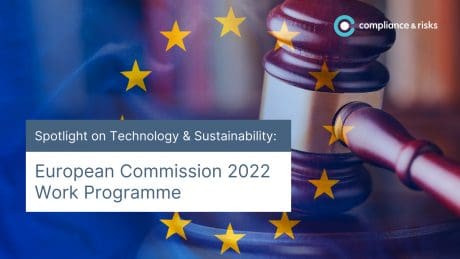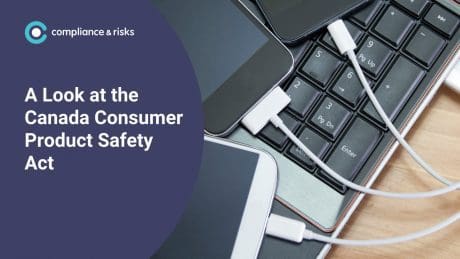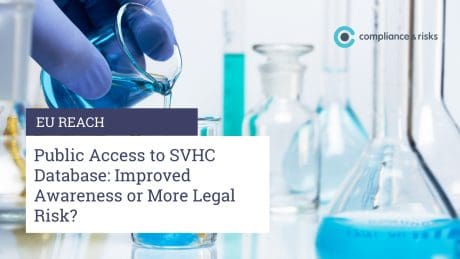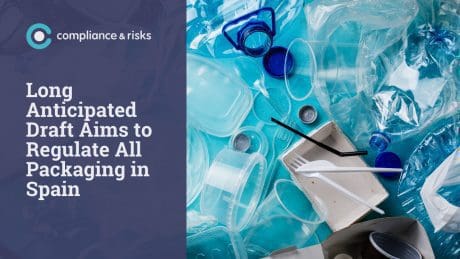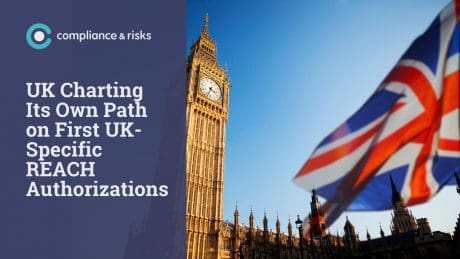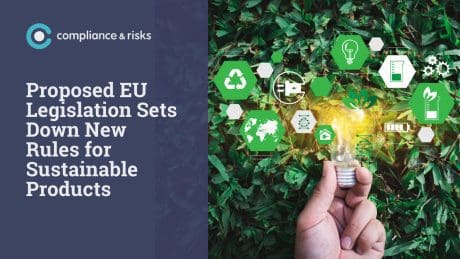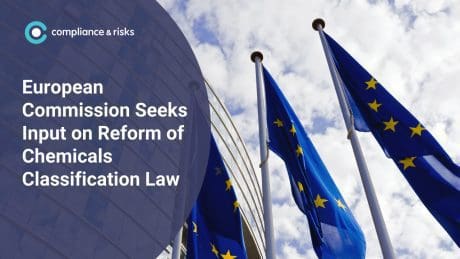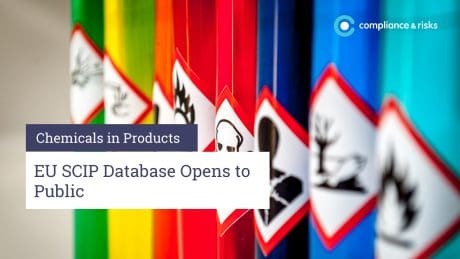
COVID-19 Regulatory Developments: Update 6

The outbreak of the COVID-19 pandemic has resulted in countries adapting their regulatory landscape to accommodate and mitigate the unprecedented disruptions to companies and individuals. Through regular updates, Compliance & Risks will closely monitor the situation and inform our clients of the latest global regulatory developments in relation to COVID-19 relevant to their topics, along with updates on items which may be of interest outside our topics.
Impact to Chemicals Management
The Ministry of Industry and Trade of the Russian Federation agreed to push back until 1 August 2020 the deadline for submitting data on chemicals (including mixtures) to the National Inventory of Chemicals. This decision intends to address practical difficulties caused by remote working policies and changes in the supply chain. Detailed information on the chemical inventory procedure can be found in the methodological guidelines available here and on the website of the Coordination and Information Centre of CIS countries.
Impact to Product Safety
Product Safety Australia published some useful guidelines and product safety tips to help businesses comply with product safety requirements despite operational disruptions caused by the pandemic.
Waste Electrical and Electronic Equipment (WEEE)
In Brazil, the Environment Agency adopted a decision establishing temporary procedures for the analysis of 2020 Annual Results Reports under the Reverse Logistic System implemented by the State of Sao Paulo. The Agency decided that quantitative annual targets will no longer be required during the health emergency period if certain conditions are satisfied. Among other things, reverse logistic systems should continue to invest the same monetary values in cooperatives either in the form of direct remunerations or social assistance to the cooperative members in addition to social assistance measures already provided by municipalities, regional state or federal governments. Proof of continuous investments must be provided through financial reports submitted alongside with the 2020 Annual Results Reports to the e-environment system.
Energy Efficiency
The Argentinian Ministry of Productive Development decided to extend until 15 June 2020 the validity of Energy Performance Certificates of certain electrical equipment having an impact on energy consumption. This measure primarily concerns energy performance certificates that expire between 20 March and 31 May 2020. The products in scope include among other things, household appliances such as washing machines, clothes washers/driers, televisions, microwave ovens, lamps and other lighting equipment. To benefit from the extension of validity, Technical Certification Bodies must submit a notification to the Secretariat for Internal Market of the Ministry of Productive Development with the information provided in Annex I.
For further information, please see the Ministry’s Resolution 119/2020.
In Japan, the Ministry of Economy, Trade and Industry (METI) issued an amendment to defer a number of reporting deadlines under the Enforcement Regulations of the Rational Use of Energy Act.
Textiles
The textile industry is taking actions to tackle the economic turndown caused by COVID-19.
On 22 April 2020, the European Apparel and Textile Confederation, alongside other organizations representing the interests of the textile, apparel, footwear and fashion industry, made a joint appeal to governments with a series of recommended actions to mitigate the economic impacts of COVID-19. The appeal urges governments to enact temporary stimulus measures and undertake duty deferral and tariff relief to address cash flow and liquidity concerns. EURATEX also strongly encourages individual companies, including supply chain partners, to take actions to “minimize disruptions and ensure workers continue to be treated with full respect while ensuring their health and safety”.
Similar initiatives have been taken by the American Apparel & Footwear Association (AAFA). On 20 April 2020, AAFA welcomed the partial duty deferral approved by the Trump administration while also “acknowledging that more needs to be done to help American businesses survive the COVID-19 crisis”. Shortly after this, the Association, alongside 470 other textile organizations, signed a coalition letter urging the US Government to extend the duty deferral program to all imports made between May and June 2020. The recommendations further call on the government to expand the deferral program to all duties and fees. This initiative is a follow-on to the previous Joint Industry Statement calling governments and financial institutions to reinforce their coordinated efforts to help the sector survive the impacts of COVID-19.
On 30 April 2020, the AAFA, together with the Council of Fashion Designers of America and the Travel Goods Association, sent a letter to Congress with directions for a potential bill providing trade-related stimulus measures (duty payment deferrals, tax credits and tariff relief) and other specific actions under the Cares Act programs.
In Canada, the Canadian Apparel Federation (CAF) has launched a new COVID-19 Resources Centre to help textile companies stay informed on the most important COVID-19 updates. The webpage will act as an ‘industry-specific hub’ to assist manufacturers and suppliers in navigating the COVID-19 emergency. It contains information on available financial help and government programs, deferral of FGST/custom duties and industry events. CAF also created a network dedicated to personal protective equipment (PPE). The network is intended to act as a ‘go-to’ resource for companies seeking to contribute to the production of PPE supplies.
Single-use Plastics
On 28 April 2020, the UK HM Revenue & Customs (HMRC) extended the consultation deadline of the document on Plastic Packaging Tax. The government recognizes that many sectors with an interest in this policy are affected by COVID-19, hence the new closing date for responses is 20 August 2020. The notification can be found here.
EH&S: Environment
On 28 April 2020, the UK‘s Environment Agency published its regulatory response to COVID-19. Businesses are expected to comply with all regulatory requirements by means of contingency plans. Where compliance is hampered due to COVID-19 related circumstances, the agency expects businesses to:
- Notify your usual regulatory contact
- Minimize any unavoidable non-compliance
- Minimize the effects of any unavoidable non-compliance
- Prioritize complying with regulatory requirements that directly protect the environment and human health
- Keep records showing why a non-compliance occurred, for example records of staff absences, contractors being unavailable or supply chain failures
As discussed in our previous update, the Environment Agency regularly publishes COVID-19 Regulatory Position Statements (RPS). Each RPS contains temporary measures to relax regulatory requirements and minimize risks to the environment and human health during the pandemic. This week, the Environment Agency released two additional Position Statements focusing on the consignment and transfer of radioactive and hazardous waste:
- Guidance RPS C13: Accumulating radioactive waste over the limits in your permit or exemption because you cannot transfer it due to COVID-19
- Guidance RPS C14: COVID-19 and delaying hazardous waste consignee returns
Last week, the Agency published COVID-19 RPS C7 providing operators with instructions on how to delay and reschedule their monitoring obligations with respect to installations, radioactive substances and hazardous waste covered by Environmental Permitting (England and Wales) Regulations (2016). Businesses seeking to rely on this RPS should comply with the conditions contained therein and obtain the approval of the Environment Agency.
The Environment Agency has loosened the deadlines for submitting certain data, environmental reports and other records specified in environmental permits for installations, waste operations or radioactive substances activities. The new time limits for submitting data, records and environment reports have not been specified. Site operators shall contact their Environment Agency area regulatory officer to define specific arrangements. For further information, please consult the Guidance on Reporting for installations, radioactive substances and waste permits.
Occupational Health and Safety
Germany published occupational health and safety standard for employers with a series of principles and operational measures to minimize the chain of infection in the workplace.
